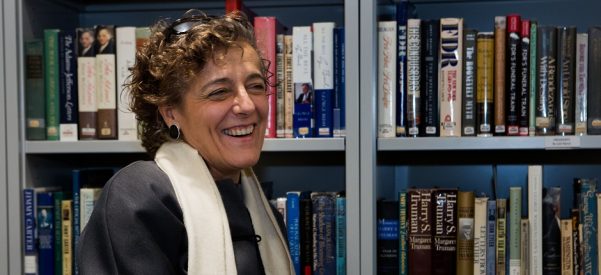Comics Are Full of Endless Possibilities
‘New Yorker’ Art Editor Françoise Mouly Says Cartoonists Can Learn a Lot From Responses to Their Work
Françoise Mouly is the art editor of the New Yorker. From 1980 to 1991, she and her husband, the cartoonist Art Spieglman, published the comics magazine Raw. Before joining a Zócalo/Smithsonian “What It Means to Be American” panel discussion about creativity in America—“What Does American Ingenuity Look Like?”—she talked in the green room about scars, novels by Émile Zola, and being knighted by the French government.
Q: Who’s your favorite cartoon character?
A: It’s not so much a character, but an approach. …











